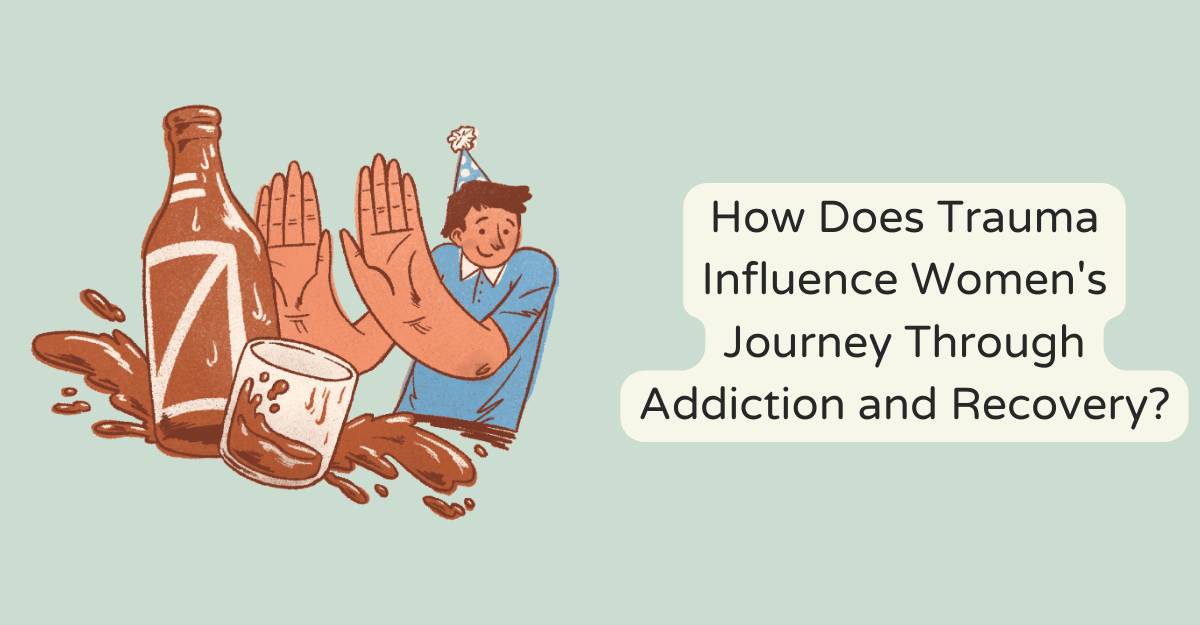
How Does Trauma Influence Women’s Journey Through Addiction and Recovery?
The intersection of trauma, addiction, and recovery in women’s lives presents a complex challenge that demands attention. The path to recovery is rarely straightforward, with each individual’s journey being profoundly unique. However, a common thread among many women grappling with addiction is the impact of trauma. There are many nuances as to how trauma shapes the addiction and recovery processes. For women, this understanding can be especially important. Here are six things you need to know.
The Role of Trauma in the Onset of Addiction
For numerous women, the road to addiction begins with an attempt to self-medicate the pain of past traumas. Trauma, whether stemming from childhood abuse, domestic violence, or other distressing experiences, often leaves deep psychological scars. Women facing these challenges may turn to substances as a coping mechanism, seeking temporary relief from their emotional torment. This section of their journey underscores the necessity of addressing underlying traumas as part of the recovery process. Without confronting the root causes of addiction, the cycle of substance abuse is likely to continue, hampering efforts towards lasting recovery.
Trust Issues and Building Therapeutic Relationships
A cornerstone of effective addiction treatment is the establishment of trust between the individual seeking recovery and their healthcare providers. For women who have experienced trauma, especially where trust has been profoundly violated, rebuilding this foundational element can be extraordinarily challenging. These trust issues can manifest as skepticism towards therapists, reluctance to open up about personal experiences, or even resistance to the treatment process itself.
Addressing these barriers is vital for fostering a therapeutic environment where healing can begin. Recognizing and working through trust issues in a therapeutic setting is necessary for addiction recovery, as it enables the development of a supportive, understanding relationship between the patient and therapist, crucial for navigating the complexities of addiction and trauma.
Heightened Vulnerability to Stress and Relapse
Trauma can significantly alter an individual’s stress response, making women in recovery from addiction particularly susceptible to relapse. The lingering effects of trauma often mean that ordinary stressors can trigger disproportionate emotional responses, potentially leading to a return to substance use as a misguided form of self-soothing. This heightened vulnerability underscores the importance of integrating stress management and relapse prevention strategies into the recovery process. Tailoring these strategies to acknowledge and address the specific challenges faced by women who have experienced trauma can foster resilience and empower them to navigate the stressors that may arise on their path to recovery.
The Importance of Gender-Specific Recovery Programs
Women’s only recovery centers offer a safe environment where women can share their unique experiences and challenges. They don’t need to fear being judged in these spaces. In these specialized programs, the treatment is tailored to address the unique psychological, biological, and social factors that affect women. For instance, topics such as parenting, relationship dynamics, and societal pressures are often more relevant and are therefore incorporated into the recovery process.
An exemplary model of such a supportive environment is Her Harbor Recovery in Fresno, CA. This space is one of many which epitomizes the sanctuary women need to heal and find strength in their journey towards sobriety. Centers like Her Harbor Recovery focus not only on overcoming addiction but also on healing the underlying trauma, thus providing a holistic approach to recovery.
Rebuilding Self-Esteem and Identity
Trauma and addiction can significantly erode a woman’s sense of self-worth and identity. The process of recovery, therefore, involves not just abstinence from substances but also the reconstruction of a positive self-image. Empowering women to rediscover their strengths, interests, and values is crucial.
This journey often involves therapeutic interventions designed to foster self-compassion, resilience, and a positive outlook towards the future. Activities and therapies that encourage self-expression, such as art therapy, writing, or mindfulness practices, can be particularly beneficial in helping women redefine their identities beyond their experiences of trauma and addiction.
Cultivating Healthy Relationships and Support Networks
One of the most profound impacts of trauma on women’s recovery from addiction is in the realm of relationships. Trauma can distort perceptions of trust and safety. This makes it hard for women to form healthy connections. As part of the recovery process, it’s essential to focus on developing skills for building and maintaining positive relationships. This includes learning to set healthy boundaries, improving communication skills, and recognizing the characteristics of supportive and toxic relationships. Peer support groups, especially those comprising individuals with similar experiences, can play a pivotal role in this aspect of recovery.






